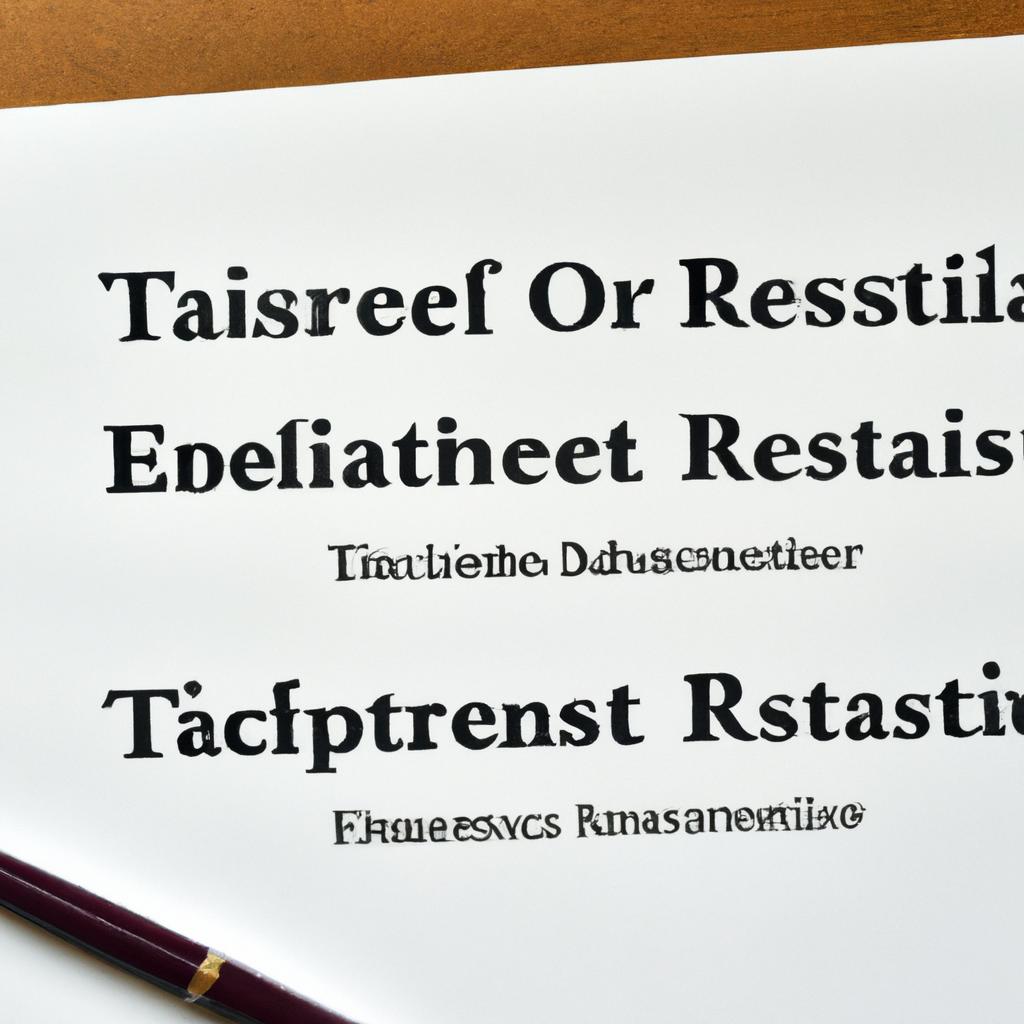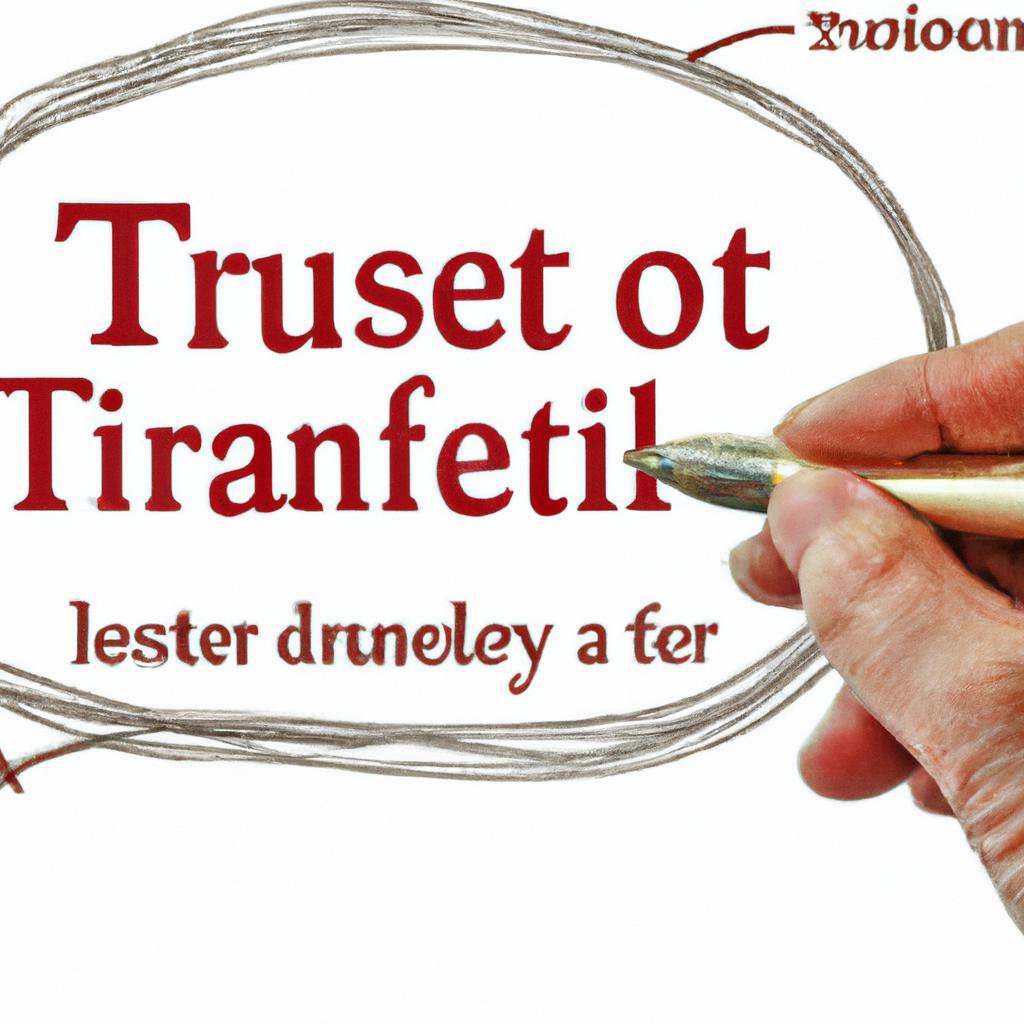In the intricate world of estate planning and trust administration, the distinctions between a trustee and a trustor are fundamental pillars upon which the legal structure of a trust is founded. Delving into these roles with precision is essential for a deep understanding of the complexities that govern intergenerational wealth transference. As experienced practitioners at Morgan Legal Group in New York City, we navigate this nuanced terrain with finesse, ensuring clarity and precision in the execution of our clients’ estate plans. Join us as we unravel the divergent responsibilities and obligations of a trustee and a trustor, shedding light on the essential dynamics that underpin the intricate web of trust law.
Trustee vs Trustor: Understanding the Key Roles in a Trust
When it comes to trusts, understanding the roles of the trustee and trustor is crucial. The trustee is the individual or entity responsible for managing the assets held in the trust for the benefit of the beneficiaries. They have a fiduciary duty to act in the best interests of the beneficiaries and follow the terms of the trust.
The trustor, on the other hand, is the person who creates the trust and transfers their assets into it. They set the terms of the trust, including who the beneficiaries are and how the assets should be distributed. While the trustor may also be a trustee, it is common for them to appoint a separate trustee to carry out the terms of the trust. Trustors play a crucial role in estate planning by ensuring their assets are protected and distributed according to their wishes.

Duties and Responsibilities of a Trustee in Estate Planning
As a trustee in estate planning, it is crucial to understand the key duties and responsibilities that come with managing a trust. A trustee is appointed to oversee the assets within a trust and ensure that they are distributed according to the wishes outlined in the trust document. Some of the main duties of a trustee include:
- Managing assets: A trustee is responsible for managing and investing the assets held within the trust to ensure they are preserved and grow over time.
- Distributing assets: The trustee must distribute assets to beneficiaries in accordance with the trust document and any applicable laws.
- Communicating with beneficiaries: It is important for the trustee to keep beneficiaries informed about the status of the trust and any distributions.
| Trustee | Trustor |
|---|---|
| Manages assets within the trust | Creates the trust and appoints a trustee |
| Distributes assets to beneficiaries | Outlines the wishes for asset distribution |
| Communicates with beneficiaries | May or may not be involved in ongoing management of the trust |
Understanding the difference between a trustee and a trustor is essential in estate planning. While the trustee is responsible for managing and distributing assets within the trust, the trustor is the individual who creates the trust and appoints the trustee. The trustor outlines their wishes for asset distribution in the trust document, while the trustee carries out these wishes and communicates with beneficiaries. Both roles are crucial in ensuring that the trust operates effectively and beneficiaries receive their intended inheritance.

Role of the Trustor in Establishing and Administering a Trust
In the world of trusts, it is essential to understand the distinctions between the roles of the trustee and the trustor. While both parties play integral parts in establishing and administering a trust, their responsibilities differ significantly.
The trustor, also known as the grantor or settlor, is the individual who creates the trust and contributes assets to it. The trustor’s primary role is to outline the terms and conditions of the trust, including specifying how the assets are to be managed and distributed. Additionally, the trustor has the authority to appoint a trustee to oversee the trust on their behalf. The trustor’s involvement typically ends once the trust is established, although they may continue to provide guidance and instructions to the trustee as needed. It is crucial for the trustor to carefully consider their objectives and wishes when creating a trust to ensure that their intentions are carried out effectively.
Key Factors to Consider when Choosing a Trustee for Your Trust
When choosing a trustee for your trust, it is essential to consider several key factors to ensure that your wishes are carried out effectively. One of the most important considerations is the trustee’s level of trustworthiness and integrity. A trustee should be someone who is honest, reliable, and capable of managing the assets in the trust responsibly.
Additionally, it is crucial to choose a trustee who has a good understanding of financial matters and is able to make sound investment decisions. A trustee should also have the time and willingness to fulfill their duties and act in the best interests of the beneficiaries. Communication skills are also important, as the trustee will need to effectively communicate with beneficiaries and other parties involved in the trust.
Q&A
Q: What is the difference between a trustee and a trustor?
A: A trustee is a person or entity appointed to manage a trust, while a trustor is the person who creates the trust.
Q: Can a trustee also be a trustor?
A: Yes, it is possible for the same person to act as both the trustee and trustor of a trust.
Q: What are the responsibilities of a trustee?
A: A trustee is responsible for managing the assets in a trust in accordance with the trust document and for the benefit of the beneficiaries.
Q: What is the role of a trustor in a trust?
A: The trustor is the person who creates the trust and outlines the terms and conditions under which the assets in the trust are to be managed and distributed.
Q: Can a trustor revoke a trust?
A: In most cases, a trustor has the ability to revoke or amend a trust during their lifetime. After the trustor’s death, the trust becomes irrevocable and the trustee must continue to manage the assets according to the trust document.
Wrapping Up
In conclusion, understanding the distinction between trustee and trustor is essential in navigating the complex world of trusts. While the trustee holds legal title to the assets and manages them on behalf of the trustor, the trustor creates the trust and transfers ownership of the assets. By clarifying these roles, individuals can ensure their wishes are carried out effectively and their assets are protected. So, whether you find yourself in the position of trustee or trustor, remember that each plays a vital role in the success of a trust.

